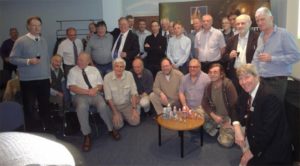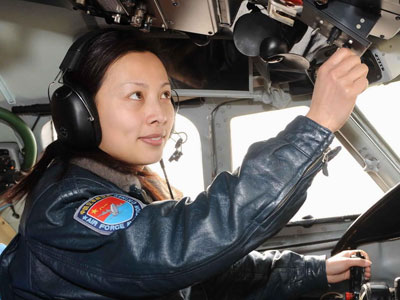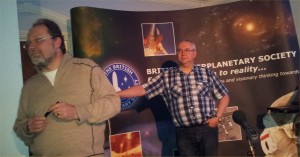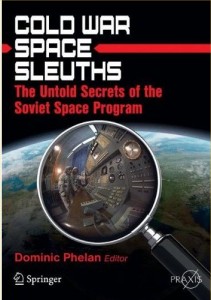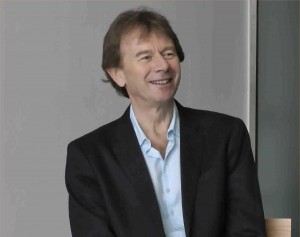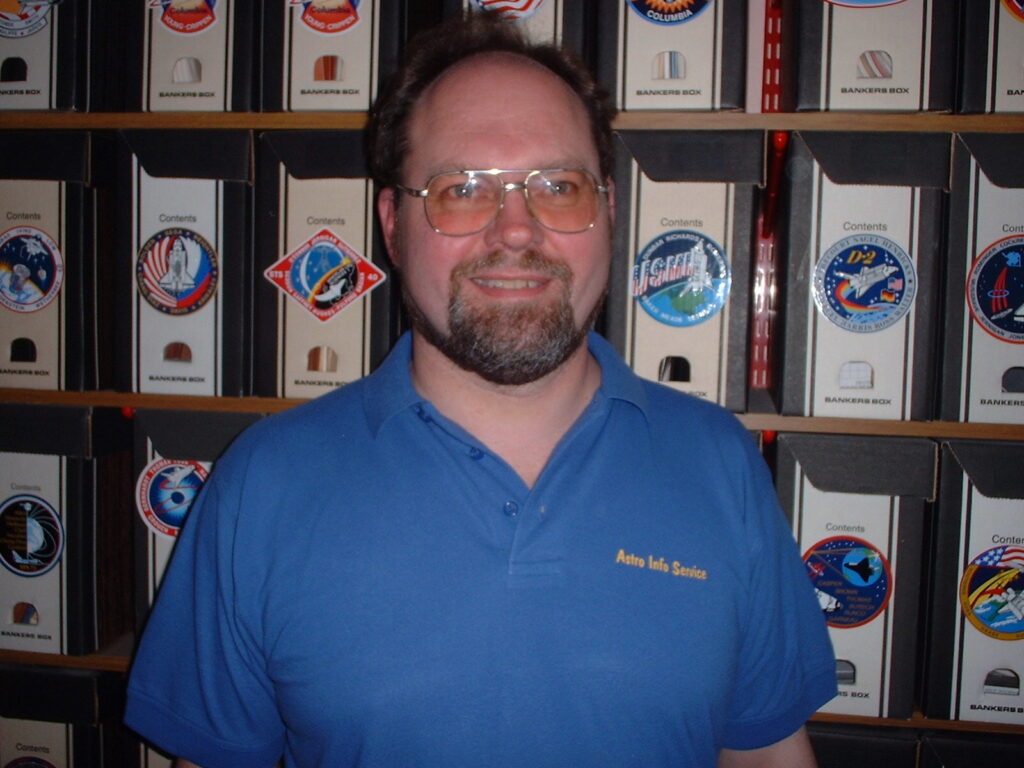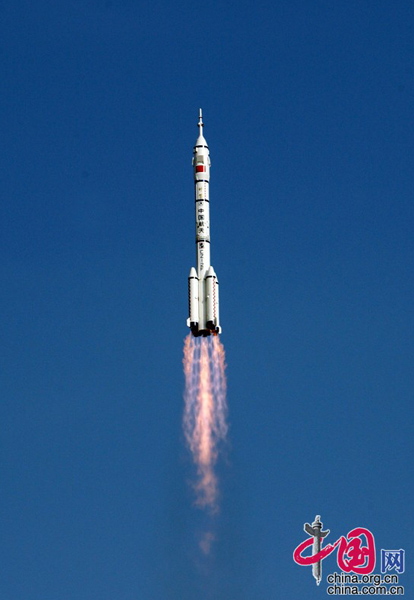 Today’s Shenzou-9 made a text book launch atop the Long March 2F rocket from the northern Gansu province based Jiuquan Satellite Launch Centre in China. Following the Soviet era like secrecy on launch date and identity of the crew, the actual launch was covered live by CCTV including feeds from the launch centre, control centre in Beijing and live images of the crew from inside the spacecraft. Remarkably open live coverage continued from before ignition, during launch including stage separation up to solar array deployment. China looks confident and seems to wants to demonstrate that it knows what it is doing.
Today’s Shenzou-9 made a text book launch atop the Long March 2F rocket from the northern Gansu province based Jiuquan Satellite Launch Centre in China. Following the Soviet era like secrecy on launch date and identity of the crew, the actual launch was covered live by CCTV including feeds from the launch centre, control centre in Beijing and live images of the crew from inside the spacecraft. Remarkably open live coverage continued from before ignition, during launch including stage separation up to solar array deployment. China looks confident and seems to wants to demonstrate that it knows what it is doing.
In an almost nonchalant approach to launch at T- 30 minutes prior to evacuate the launch site, the departing engineers lined up in front of the launch tower for pictures. The whole thing was tinged with an unusual aura of routine rather than the historic event in space history.
Launch itself did not generate the large quantity of dark smoke common with NASA Atlas and space shuttle. Perhaps because the booster rockets used liquid not solid fuels. The crew looked sombre and did not communicate much with each other or mission control. They hardly smiled preoccupied instead by their manuals in hand. Military presence was always there. Crew saluting at launch, capcom shouting orders and the first congratulatory message was announced by a senior official in military garb.
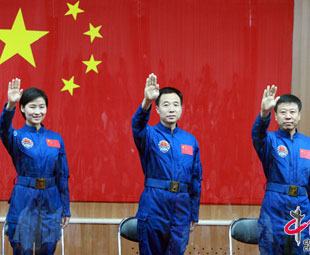
Before docking with Tiangong-1 the space station launched in September last year, the crew will have to endure the living quarters not much larger than that of the command module of the Apollo era. But then they were all men. The Shenzhou-9 crew, confirmed only yesterday, consists of crew three astronauts, female Liu Yan and two males Jing Haipeng & Liu Wang. There is speculation that Liu Yan will undertake a spacewalk during this mission. Today’s launch coincides with the 49th anniversary of the launch of Vostok 6 with cosmonaut Valentina Tereshkova.
Shenzhou-9 will make 5 orbital manoeuvres before an automatic docking with Tiangong-1 on Monday June 18th. It will remain docked for 8 days. Following another but manual docking manoeuvre, the crew will return after 11 days in space.
